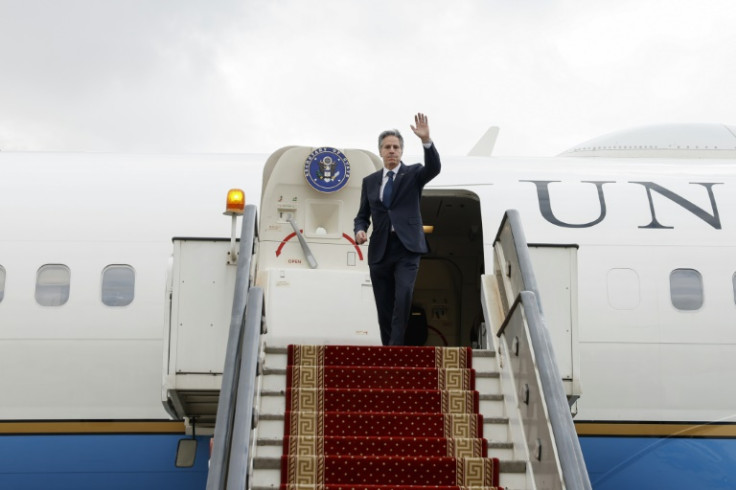
US Secretary of State Antony Blinken will meet a senior Chinese official in Washington on Friday on the eve of Taiwan's elections, as the United States seeks to discourage Beijing from taking action against Taipei.
Blinken, briefly back in Washington in between his latest Middle East crisis tour and a trip to the World Economic Forum in Davos, will see Liu Jianchao, who heads the international division of the Chinese Communist Party's Central Committee, the State Department public schedule showed.
Taiwan, a self-ruling democracy claimed by Beijing, heads to the polls on Saturday with Beijing describing the front-runner, Lai Ching-te, as a "severe danger" due to past comments favorable to outright independence.
But Lai has been cautious on the campaign trail and US officials say privately that they do not see Chinese statements and actions as out of the ordinary for a Taiwan election.
The United States, while recognizing only Beijing, provides weapons to Taiwan to ensure its defense, as China has not ruled out force to "reunify."
The United States has "deep confidence in Taiwan's democratic process and believe it is for Taiwan voters to decide their next leader free from outside interference," State Department spokesman Vedant Patel said Thursday.
President Joe Biden's administration plans to send an "unofficial" delegation to Taiwan after the election, a move it announced in advance and described as routine.
Support for Taiwan is especially strong in the US Congress, where the Senate on Thursday unanimously passed a resolution commending Taiwan, hailing the "example it has set for self-governance, not just for the Pacific region, but for the world."
Blinken will also meet separately at the State Department with Foreign Minister Yoko Kamikawa of close US ally Japan.
The trip by Liu, seen as a rising figure in Chinese policymaking, comes as the United States and China step up dialogue to ease tensions that have soared in recent years.
The two powers' presidents, Biden and Xi Jinping, met in November in San Francisco where they agreed to restore military dialogue, seen by Washington as critical to preventing mishaps.
Liu, speaking Tuesday at the Council on Foreign Relations in New York, took a conciliatory tone with little criticism of the United States.
He declined to say how China would respond to Taiwan's elections and said Beijing noted US statements that it does not back Taiwanese independence.
Liu met earlier with Jon Finer, the deputy national security advisor, at the White House.




